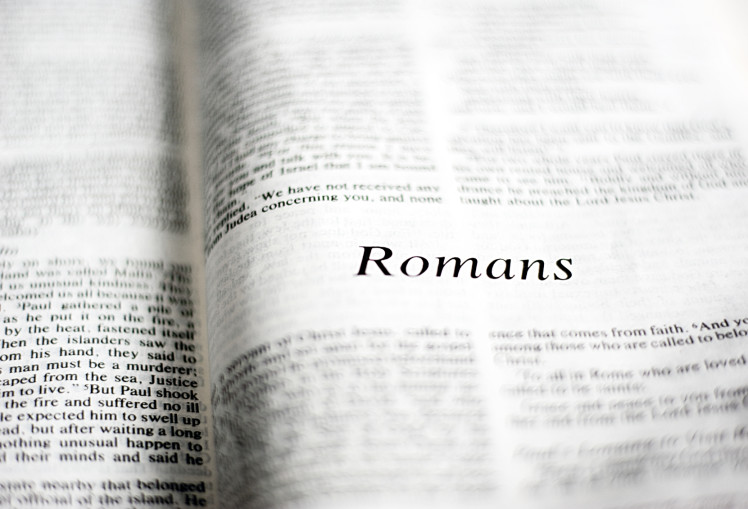Blog

Romans Bible Guide – Day One
February 15, 2016
Romans 1:1-7
1 Paul, a servant of Jesus Christ, called to be an apostle, set apart for the gospel of God, 2 which he promised beforehand through his prophets in the holy scriptures, 3 the gospel concerning his Son, who was descended from David according to the flesh 4 and was declared to be Son of God with power according to the spirit of holiness by resurrection from the dead, Jesus Christ our Lord, 5 through whom we have received grace and apostleship to bring about the obedience of faith among all the Gentiles for the sake of his name, 6 including yourselves who are called to belong to Jesus Christ,
7 To all God’s beloved in Rome, who are called to be saints:
Grace to you and peace from God our Father and the Lord Jesus Christ.

Points of Interest:
- This is the first half of Paul’s introduction, and it’s a long one. In this greeting we’ll read today and tomorrow, Paul crams in much of the key vocabulary and themes of his letter. Apostle, promise, gospel, God, Son, resurrection, holiness, Lord, grace, obedience of faith, called to belong (together) to Jesus Christ – it’s almost like a glossary, but without the definitions.
- ‘servant of Jesus Christ’ – Servant, or slave, sounds undignified, but “slave of Caesar” was a common title for an official agent or messenger of the Roman emperor. By calling himself a “slave of Jesus Christ”, Paul communicates both devotion and authority. This is reinforced with the word “apostle,” which means “one who is sent”. Paul hints at his back story, likely already known to his readers, that he had a vivid, life-changing spiritual vision of Jesus, in which he learned he would spread the word about Jesus among non-Jewish peoples. Caesar has his slaves and ambassadors, and apparently Jesus does as well, and Paul is one of them.
- ‘gospel of God’ – With the word “gospel” (from the Greek for “good news”), Paul continues to borrow from Roman imperial language, applying it to Jesus. The great deeds of the Emperors were called their “good news”. Paul says that God has good news too, implying that it’s better news, and more important.
- ‘his Son, who was descended from David…’ – The dense theology of verses 3-4 is likely quoting a very early bit of poetry about Jesus, something people may have recited in the first worship spaces in Jerusalem in the 30s A.D. “Descendant of David (by flesh), declared to be Son of God (in Spirit) through resurrection, Jesus our Lord.” It’s neat how it has both Jewish (descendant of David, Israel’s greatest king) and Greek (flesh/spirit distinction) elements to it, reinforcing Paul’s radically inclusive message.
- ‘Jesus Christ our Lord’ – Two final terms of distinction for Jesus. “Christ” is the Greek version of a Hebrew term (Messiah) for God’s special person who would change history and inaugurate God’s Kingdom. It’s a Jewish, royal title. And “Lord”, which means “master” and is a nod to one translation of the most common Old Testament word for “God.” Paul has said a lot about Jesus in a short span – God’s man, God’s Son, descendant of David, alive from the dead, giver of kindness and peace, and master.
- “Saints” – It’s what Paul calls the people connected to Jesus. It means “holy”, kind of a spiritual version of “special.” And they’re special because God loves them, all of them.
Taking It Home:
For you – Paul calls followers of Jesus God’s beloved, belonging to Jesus, and saints. Try these images out on yourself for a minute. Do any of them provoke a response from you?
For your 6 – Have any of your friends bought into supposed good news that isn’t serving them, that looks more like propaganda? Pray that they would discover the good news that God is alive and loves them.

